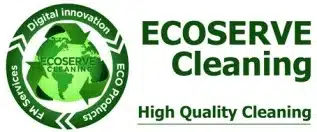Why is a Happy Office a Clean Office?
We spend a significant amount of time at work. In the United Kingdom, the average person works 1 625 hours every year (OECD Better Life Index). As a result, we must work in a good setting. Employees can work to their full potential, meet goals, and love their jobs when working in a good environment.
Ecoserve Cleaning Office Cleaning in London services understands that a clean office may improve employee satisfaction and productivity. Here are some of our primary arguments to emphasize the advantages of routine office cleaning!
Boosting the Image of Your Business
As a study shows, people are quick to evaluate, and first impressions are persistent. People assess a book by its cover, and companies are judged by their offices. Keeping your office neat will help you make an excellent first impression on everybody who walks through the door. A tidy office conveys a lot about you and your business. It demonstrates that you are concerned, that your organization and staff are trustworthy, and that you are a competent company to work with.
The last thing you want is for your company’s brand to be tarnished by a reputation for having a filthy workplace. You can clean up your office if it is dirty and cluttered.
Increased Willpower
Working in a clean atmosphere might assist your staff get in the correct mindset and starting their day on the right foot. Nobody wants to go to work knowing that they will be spending the next eight hours in a filthy environment. Workers can become agitated and inattentive in a cluttered atmosphere.
According to one study, nearly 70% of respondents felt that the quality of their office impacted their motivation or productivity.
According to another survey, almost 90% of respondents believe that clutter harms their job.
Every object in the office should have a purpose; by removing any unneeded items, you may help to de-clutter the space and keep it from looking cluttered.

A Healthy Environment is Clean.
Keeping your office clean can not only make your employees happy, but it will also help them stay healthy. Keeping your office clean helps avoid the spread of germs and bacteria, which helps keep your staff healthy.
You will reduce annual sick leave by minimizing illnesses, a significant advantage to your firm. It will also assist in alleviating the stress experienced by employees who are tasked with picking up the work left behind by sick coworkers.
Keeping your office clean will not only assist in marketing your business, but it will also help to keep your employees happy and healthy.
Any organization’s principal goal should be to increase staff productivity. This will benefit your business by allowing you to get the most out of your employees while also keeping them happy and productive.
Employees Who Work in Clean Settings are Happier and Healthier.
Cleanliness and happiness are inextricably linked, which is true in the office and at home. Clean settings are associated with decreased stress levels, with 60% of persons stating that they feel less anxious in a clean environment.
With at least 1% of workers suffering from work-related stress, depression, or anxiety, workplaces must reduce the risk of these conditions developing or worsening.
A clean environment also aids employees’ physical wellness. Regular office cleaning helps keep viruses, bacteria, and other germs out of the workplace, resulting in fewer sick days for employees.
The Productivity of a Team is Boosted by Keeping the Office Clean.
Employee productivity can be boosted significantly by improvements in physical and mental health.
Minor ailments, such as coughs and colds, are the most prevalent cause of missed workdays in the UK, accounting for 34 million lost days each year.
The average adult gets two to five colds each year, but this number can be reduced by performing thorough office cleaning regularly.
A clean atmosphere is easier to be productive in and enhances health-related productivity. In a research done by Clorox, 72 percent of respondents said that working in a clean atmosphere increased their productivity.

Comments are closed